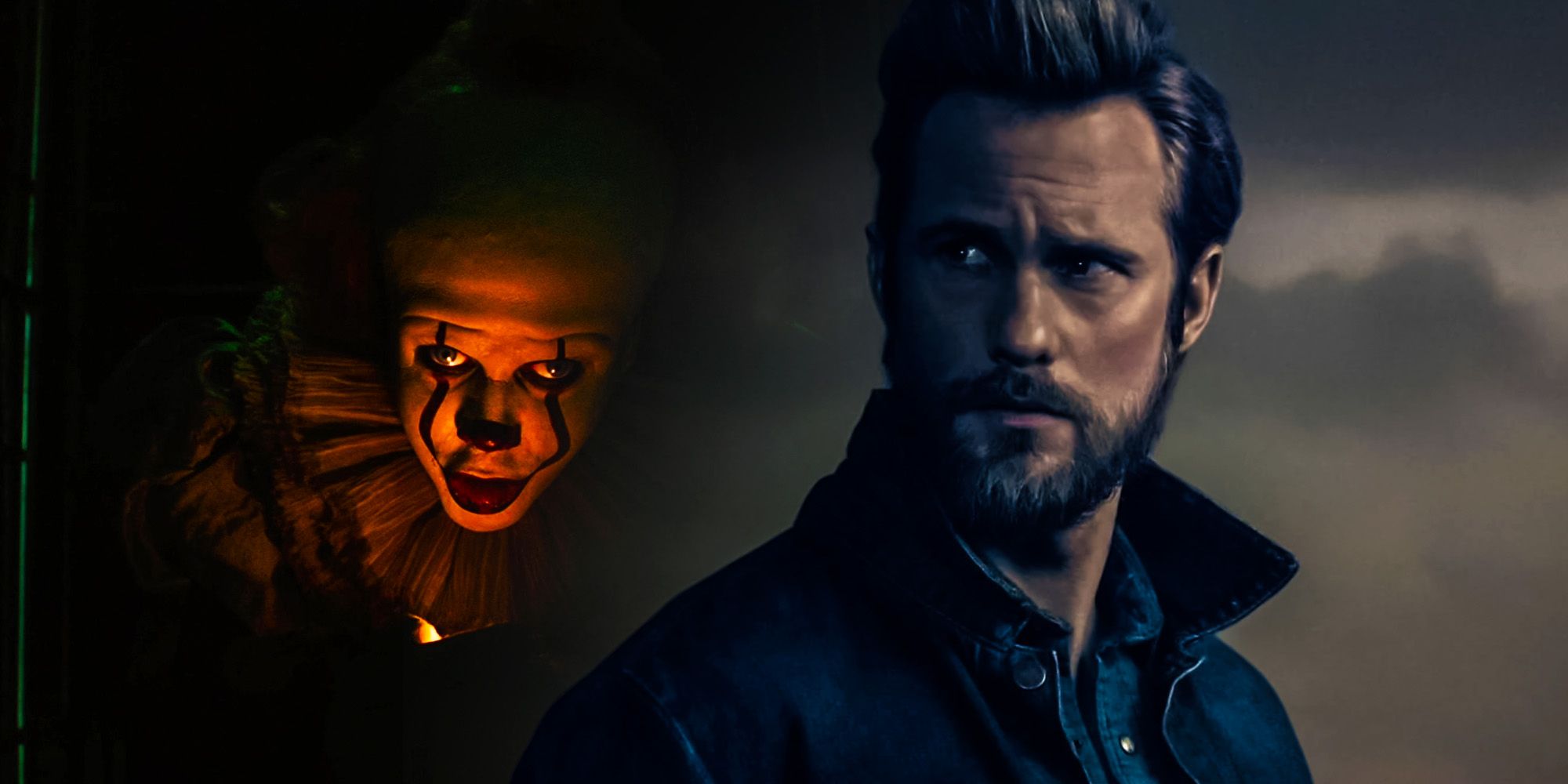Rethinking Stephen King: 4 Groundbreaking Randall Flagg Theories

Table of Contents
Flagg as a Necessary Evil
The Balance of the Cosmos
One compelling theory posits that Flagg, despite his seemingly endless string of evil acts, serves a crucial, albeit disturbing, purpose in maintaining a cosmic balance. Is he, in a twisted way, necessary?
- Examples: In The Stand, Flagg's actions, while horrific, ultimately push humanity to the brink, forcing survivors to confront their own morality and rebuild society. In The Eyes of the Dragon, his machinations, though cruel, inadvertently set the stage for the eventual triumph of good.
- Supporting Details: King's multiverse often explores the delicate interplay between chaos and order. Flagg, as a powerful embodiment of chaos, might be a necessary counterpoint to the forces of order, ensuring the universe doesn't stagnate. His actions, however brutal, could be viewed as a catalyst for growth and change.
The Antagonist as Catalyst
Flagg’s presence often acts as a powerful catalyst for character growth and societal evolution. He pushes characters to their limits, forcing them to confront their beliefs and make difficult choices.
- Examples: In The Stand, Flagg's manipulative influence forces characters like Stu Redman and Frannie Goldsmith to redefine their values and fight for their beliefs. His presence in The Dark Tower series continually challenges Roland Deschain's resolve and pushes him towards his ultimate destiny.
- Supporting Details: This aligns with many of King's other works that explore the themes of good versus evil, showing how the conflict between opposing forces drives character development and narrative tension. Flagg's role isn't merely to cause destruction; it's to instigate profound change.
Flagg as a Multifaceted Entity
Beyond Good and Evil
The simplistic categorization of Flagg as purely "evil" fails to capture the complexity of his character. He transcends simple morality, existing as a potent force of nature, embodying both creation and destruction simultaneously.
- Instances: Flagg displays seemingly contradictory behaviors. He can be charming and manipulative, yet also brutally cruel and ruthless. He can inspire awe and fear in equal measure.
- Supporting Details: This suggests a god-like figure operating outside traditional moral frameworks, a force of nature devoid of human empathy yet capable of both immense creation and devastating annihilation. He is not simply evil; he is.
The Walter O'Dim Enigma
Flagg's various names – Walter O'Dim, the Man in Black, and others – add another layer of mystery. Do these names represent different facets of his being, or are they separate entities entirely?
- Different Names: Each name seems to subtly reflect a different aspect of his personality or power. Walter O'Dim suggests a more intellectual and calculating nature, while the Man in Black emphasizes his shadowy, mysterious role.
- Potential Implications: The multiplicity of names hints at a complex origin and a vast, potentially incomprehensible power. It raises questions about his true nature and the extent of his influence across King's multiverse.
Flagg and the Dark Tower
The Key to the Tower
Many theories suggest a deep connection between Flagg and the Dark Tower itself. Could he be an intrinsic part of its structure, a guardian, or even a key to its ultimate mysteries?
- Textual Evidence: Flagg's constant presence and influence throughout the Dark Tower series strongly suggests a deeper, more fundamental connection than a simple antagonistic role. His actions often seem interwoven with the Tower's fate.
- Symbolic Significance: The Dark Tower represents the center of King's multiverse, a nexus of power and destiny. Flagg's connection to it elevates his importance beyond a mere villain; he becomes a crucial element in the cosmic structure itself.
Flagg's Manipulation of the Beams
Flagg demonstrates an unsettling ability to influence, and perhaps even manipulate, the Tower's beams – the pathways of energy that connect different realities.
- Examples: His actions in various novels seem to directly impact the stability and flow of these beams, suggesting a power far beyond simple physical strength.
- The Beams' Importance: The beams are fundamental to King's cosmology, representing the connections between worlds and the very fabric of reality. Flagg's ability to manipulate them underscores his immense power and cosmic significance.
Flagg’s Ultimate Fate and Future Appearances
The Unfinished Story
Flagg's story remains unfinished, leaving many questions unanswered. This ambiguity fuels speculation about his potential future appearances in King's work or future adaptations.
- Open Questions: What is his ultimate goal? What is his true origin? Will he ever be truly defeated, or is his influence destined to continue?
- Possible Scenarios: The possibilities are endless. He might return in a new guise, perhaps even as a reluctant hero, or his influence might continue subtly shaping events from the shadows.
The Legacy of Fear
Flagg's enduring impact on King's fictional world is undeniable. He remains a terrifying and compelling antagonist, a source of fascination for readers and a testament to King’s ability to create truly unforgettable characters.
- Iconic Status: Flagg's iconic status among King's fans is a testament to his enduring power and influence.
- Reasons for Fascination: His blend of charisma and cruelty, his enigmatic nature, and his deep connection to the Dark Tower make him a truly unforgettable villain.
Conclusion
This exploration of four groundbreaking Randall Flagg theories offers a fresh perspective on this complex character. We've examined his potential for both good and evil, his multifaceted nature, his deep connection to the Dark Tower, and the enduring mysteries surrounding his future. These theories highlight Flagg's significance as more than just a villain; he's a powerful force shaping the destiny of King's multiverse. What are your own theories on Randall Flagg? Share your interpretations and join the discussion on Rethinking Stephen King: Randall Flagg Theories. Further reading on Stephen King and the Dark Tower series can provide even more insight into this fascinating character.

Featured Posts
-
 Surge In Car Break Ins At Elizabeth City Apartment Complexes
May 09, 2025
Surge In Car Break Ins At Elizabeth City Apartment Complexes
May 09, 2025 -
 Colapintos Move From Williams To Alpine Understanding The Decision
May 09, 2025
Colapintos Move From Williams To Alpine Understanding The Decision
May 09, 2025 -
 French Europe Minister Promotes Nuclear Energy Sharing
May 09, 2025
French Europe Minister Promotes Nuclear Energy Sharing
May 09, 2025 -
 Examining The Correlation Between Trumps Presidency And Elon Musks Net Worth First 100 Days
May 09, 2025
Examining The Correlation Between Trumps Presidency And Elon Musks Net Worth First 100 Days
May 09, 2025 -
 New Anchorage Establishments Candle Studio Alaska Airlines Lounge Korean Bbq Diner And Eye Tooth Restaurant
May 09, 2025
New Anchorage Establishments Candle Studio Alaska Airlines Lounge Korean Bbq Diner And Eye Tooth Restaurant
May 09, 2025
